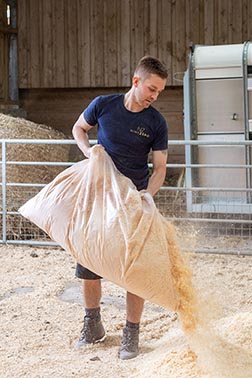
THE UK Government recognised timber’s place in the route to sustainable projects by setting out its groundbreaking Timber in Construction Roadmap in December. With full support of the initiative, aimed at aiding supply, Nine Zero Timber Windows and Doors has gone one step further in setting out its commitment to reducing carbon emissions, by detailing to customers the eco-centric decisions and practices it has in place.
Nine Zero manufactures and supplies FSC-certified timber windows and doors with a six to eight week lead time to meet every project demand. Three day-to-day processes demonstrate Nine Zero’s overarching sustainability goals: recycling timber waste, providing renewable energy to local homes, and selecting an eco-responsible energy supplier.
Nine Zero products are made in the UK, and an intrinsic part of the manufacturing process is ensuring all waste produced is appropriately reused. Partnering with farms local to its Cornwall workshop, Nine Zero supplies timber waste for animal bedding and composting, reducing landfill contributions and supporting the agricultural community.
Since its launch in 2017, Nine Zero has taken strides towards sustainability. By converting the energy generated from recyclable materials into renewable energy, the company supplies power to local homes, reducing the UK’s reliance on fossil fuels. Nine Zero has also chosen to partner with green energy supplier, Pozitive Energy, strengthening the business’s ownership and accountability in taking action against climate change.
“It’s reassuring to see the government setting out a clear roadmap to increase timber supply, which is so needed to reach our sustainability goals, both in construction and globally,” says Steve Winscott, company director at Nine Zero.
“We have always taken a proactive approach to reducing our carbon footprint at Nine Zero, and I think it’s important that manufacturers look at their own processes to see how they can drive this down. It may feel like a ‘small act’ here and there, but these small acts, when multiplied by millions, will lead to significant change.”
See page 32 of our April/May 2024 issue on our Back Issues page.

